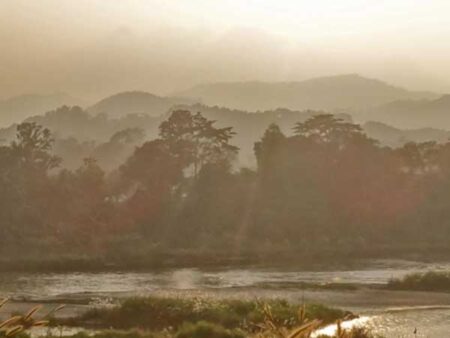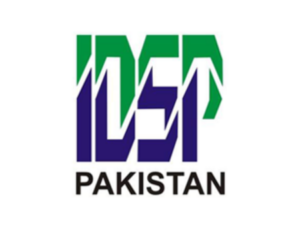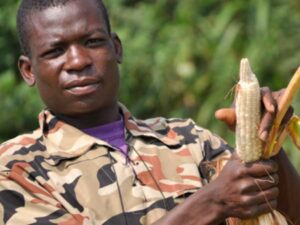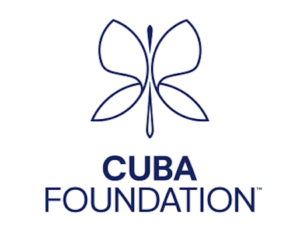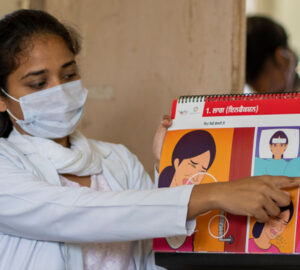The Population and Community Development Association helped normalize contraceptive use in Thailand, supporting family planning and reducing HIV transmission. The association is also catalyzing new social enterprises and schools, increasing social and economic opportunity in Thailand and beyond.
Mechai Viravaidya of Population and Community Development Association spoke with Jessica Kantor on February 8, 2023. Click here to read the full conversation with insights highlighted.
Jessica Kantor: Could you start by introducing yourself and also describe the problem that you are addressing and how you are addressing it?
Mechai Viravaidya: We’ve been working for 49 years. First, to reduce births, family planning. [It was] very successful. Second was to reduce deaths from AIDS. Third was to reduce financial dependence on others by establishing social enterprises. We established in the last 40 something years about 31 of them. And then, to reduce poverty by bringing companies in to partner with villages, because companies have money and skills. In return, the villages must plant a tree for every $3 [received] so that the donor feels that they’re getting trees. [Their] money goes to set up a social enterprise as a loan fund for the village. And then our final one is trying to reduce ignorance. We established a school called The Bamboo School that uses school as a gateway for social and economic empowerment in villages surrounding the school.
Our Bamboo School is very successful. The UN said it is one of the most innovative schools in the world and many schools in Thailand have come to ask us [about it] and we were able to help them. They want something like ours but not entirely. [We helped them] write a proposal to ask for money from the private sector to help them to start up. Getting kids to learn how to do business and agriculture in school so when they leave school they don’t have to migrate to cities like their parents. We want them to learn how to do business while at school, from primary school onwards. And this is working extremely well. The project is coming to an end, but we have just started doing income generation and food security for the elderly by working with their grandchildren in the villages.
We would like to expand this because if we can expand it more, then the Ministry of Education will probably support [it] by saying that we have 25 billion baht in funds for school lunches. If some of that money can be used to buy vegetables from the elderly, we’ve solved the problem. Something that I think is applicable in any country is using school as a platform for social and economic advancement. The Cambodian government has now signed an agreement with us, but we don’t have the money yet to help them. India [is also] coming, and we have Bhutan and Laos. There’s a very strong interest in wanting to get this going. If there are partners who are interested in doing this, [they can] come over and see and then we’ll be very happy to work with them.
We’re now working in schools as a platform, going into the villages. When the elderly villagers don’t have land, the schools say, “use the school land.” We also have [programs] in areas where the villages don’t have land, but the temple does. We have 30,000 temples [across the country], and the temple says “we have temple land come and use it to grow”. The final one that we are about to do, we agreed but haven’t started yet, is to work with the local district hospital whereby they will identify people who are sick, who are poor, and we will go down at the school in the area to let them earn income and [provide] farm demonstrations at the local hospitals.
When people come to the hospital they can learn about income. These are the things we’re trying to do. Since we won the Skoll award 15 years ago, in 2008, we’ve established about 31 social enterprises, but some have suffered because of COVID. We’ve also helped about 245 schools to have a farm as a social enterprise, have a loan fund in the school for students as a social enterprise, and a loan fund in the villages for the elderly.
Jessica Kantor: You just gave a really great descriptive overview of everything that you’re doing. My first question based on what you just shared with me is, what would you say is the main problem that you are actively addressing and how are you responding to that problem?
Mechai Viravaidya: We’re addressing the universal problems of poverty, inequalities and zeroing in on young kids and their grandparents, because they’re working together. In Thailand, we have 6 million kids living with grandparents and I call them temporary orphans. The reason why we have that is that when the parents were at school, they had no knowledge at all of how to do business, how to earn money. So when they finished school they had to migrate to the city to earn income. We want children in school to have a chance to learn how to make money by having a modern farm in the school, including hydroponics and so on. From the school, we have a loan fund for the students to work in agriculture and other businesses. So the afternoon is used for business purposes and that has worked very well.
The senate of Thailand has taken a look at our school and said very good things about it. But more importantly, they said the School Partnership Project where we get a company to help us work with the school as a partner, they said that is exactly what Thailand needs and they’ve proposed it very strongly to the government.
In particular, [we hope to fund] food and income security for elderly [with funds from] the Ministry of Education that has 25 billion baht for school lunches. If we can have 25 billion baht from this current budget to use to help get rid of poverty, it’s a new idea and I think many schools have that. Cambodia’s very interested in signing an agreement with them.
We’ve been working on getting schools to learn about modern agriculture, vegetable growing, and also other businesses for children using the loan fund in the school and the loan fund in the village for the elderly and parents. We started up in the school and we’re growing there. It has become extremely successful. We have more schools asking for it, [but] we don’t have the money. The Senate made a proposal to parliament to say that this is something Thailand needs to do. We can’t tell how the government’s going to react, but it’s very positive. We also have very positive follow up from the Ministry of Education. They like it very much too. So nothing in terms of obstacles. The only one is the financial constraint. All the projects, after we finish with them, within about three years, they are sustainable because the farm is still there. The loan fund for the students and in the village is still there.
We are helping to establish social enterprises. We’ve done about 200 social enterprises in schools and in villages combined. All of this goes back to Skoll when we were given $1 million, to do the social enterprise. And we’ve been working on it by partnering with companies. We believe we can prove that the school is a gateway for social economic advancement, we’d like to see it expanded into other countries. We would like to do it more in Thailand if we can be given some assistance to move and to get matching funds from the private sector. The idea is not to do the whole country, but to reach a level where the ministry of education is confident they can follow on and do it.
Jessica Kantor: You mentioned in your statement that success to you is when, after a few months or years, these stations are still in place. Are those the only ways that you’re measuring success or how else are you measuring success in this?
Mechai Viravaidya: We have many ways we’re [measuring success]. We ask five groups, the director of the school, the teachers, the parents, the community and the students, [about their experiences with the programs]. We use a self anchoring striving scale, which is an American model. And we’ve adjusted it and call it the Bamboo Ladder. We ask over three periods, scaling from one to 10 where one is lower and 10 is the best, what was it like one year before we began? For instance, in terms of quality of education or the relationship between the community and the school and in terms of knowledge. And we ask all five different groups. The other way is external in that the center went out and interviewed people and wrote a report. The publication just came out about a month ago, saying that this is more successful and that Thailand should adopt this model. But they said we need to lead a bit more to make sure that all of the kinks are ironed out.
Jessica Kantor: You had mentioned before that you aren’t seeing any issues other than lack of funding, but every social change model does have strengths and limitations. Do you see any limitations to your work other than funding?
Mechai Viravaidya: Well, anyone who’s brighter than us please help. We are willing to learn from anybody and if they have things to add to it, we’d be delighted. But at the moment we’ve been the ones doing it and other countries have come along and they said they like this. So we’ll sign an agreement with the Cambodian government to try. But funding’s not yet available so they will have to do something and we’ll try to find some money to match.
Jessica Kantor: You’ve been doing this for a while so obviously you’ve been learning from mistakes that you’ve made along the way. Can you describe a hurdle that you met early on or even recently, and talk about what lesson you learned from that hurdle that you’re now implementing?
Mechai Viravaidya: Some skeptics in the Ministry of Education said, “Oh we can’t do this, it doesn’t work. You have no experience in education.” But we started The Bamboo School, and that was used as a model. And several hundred other schools have come in. They liked it and they wrote a letter to us, could we please find resources to establish some of the stuff in The Bamboo School in their own school. That’s their request. And some schools didn’t come and [when we] approached them, they said, “Oh it’s too difficult, we don’t want to do it.” But that’s all gone by the wayside. We just launched 20 schools in the last three months, two in Cambodia and 18 in Thailand proposed to us by the Senate. The Senate went around and met many organizations and they came back and said they would like us to help them with 180 schools. We said we don’t have the money, we are able to do 20.
The last three months have also been extremely successful in Muslim communities. People don’t feel this is a threat. They’re the ones implementing it. We hold their hand and work together with them. We are not walking around like American workers. We are helping to work with them and we are getting the children to approach the grandparents to see what their needs are. First we ask, do they need shoes? We have a small budget for about $300 to buy shoes, so we ask what sort of shoes and for whom? Then you go and put it onto their feet, which is a great sign of respect. When you’re working with the elderly, we didn’t recognize it in the early days, but you are working with somebody they care for very much as their grandparents, as their parents. Now we have learned that the first group to meet at the school is the elderly in the villages. That has been a great boom for us.
Jessica Kantor: What do you think makes your approach distinctive? Why have you found success in an area where a lot of other countries and organizations have not?
Mechai Viravaidya: We’ve seen organizations help the school, train the teachers, and put computers in. This gets them ready for the future. They know how to make money while at school, while at kindergarten even. They also begin to do it at home. We have a loan fund in the community. We have a loan fund with the students and a loan fund for the community. So that is sustainable. When we stop, it just doesn’t dry up. We have some more successful schools where over six years the fund has grown 23 fold and about 500 projects and about 6 million baht is circulated. The success rate is there and many want to implement it. We don’t see any constraint except that we have the money, [then] we can do it very easily.
We have other schools that act as a lighthouse. We have one school in northern Thailand, a very smart school, a government school. We started with money from the private sector and 10 schools around that school came and liked it, and said we’d like to do something [similar]. So they approached us and we helped. This first school helped to be the leader in organizing it. Now that has expanded to be 86 schools, but we started with one. We can see now that the multiplier effect of getting somebody is useful. Not just for doing that school but using that school and looking for others as a lighthouse. It’s very simple that schools have land, have buildings, water, electricity, communities, teachers, children, all these assets not being used.
Jessica Kantor: What do you think is most needed from other people? What do you think is needed in order to be a systems level change and have it not just be individual work?
Mechai Viravaidya: Honestly we believe others have good ideas, but we believe ours is also good. It is viable, the UN has said it is one of the most innovative schools in the world. We would like to meet others, at the very least they can come take a look. Because several will come and like it very much.
Jessica Kantor: Other than financial aspects, what do you think is needed in order for this to become a sustainable model that’s easily repeated through different communities in different countries?
Mechai Viravaidya: When we have a bit more financial resources, we can go into the details of reporting and evaluation to add to the others and let them ask questions and we’ll try to provide the answers. We’re very confident with what’s happened, and the fact that the Senate has written a whole book on the system using our type of education to reduce poverty and inequalities is very good proof.
Jessica Kantor: How do you see your work evolving over the next five years?
Mechai Viravaidya: We want to expand in Thailand and help others do it in other countries. We’ve got Southeast Asia and then you’ve got Bhutan, you’ve got Nepal, you’ve got Cambodia, Laos, Vietnam, all around us. The Philippines and anybody else. They can use this model in any country because in every country the school is closest to the community as a government organization, nobody’s closer to them. So this is a good place to start. It’s got hardware and software ready to move. It’s just so very surprising why this did not come up earlier. We started 48 years ago. Why did this happen only 15 years ago?
There’s a blind spot somewhere for everyone. I think it’s compartmentalization, education is education. We say it should be integrated and we are using the sustainable development goal (SDG) of the UN, but we said 17 [SDGs] are not enough, we need four more. One, no corruption. If you have corruption you’re not going to get the poor out of poverty. Two, sharing. People who have resources must learn how to share. The third is to obey the rules and regulations. And the final one, help secure family security for your own family. Don’t think the government’s going to do it. We decided to add those to the UN sustainable development goals. And so we’re using that approach also.
Jessica Kantor: How did you get to this model? Was it something that you learned from your previous decades of work?
Mechai Viravaidya: I guess my work has been as a change maker and you come along, you see certain things that can be done to adjust. You tried out, it works and you expand more. It’s no miracle, it’s just learning bit by bit. We started off in family planning then with AIDS then social enterprises and then poverty eradication by partnering a company with a poor village and then finally a school. All those things have come together now to go through the school, into other schools, and from the schools into the villages.
Jessica Kantor: What motivated you to become a change maker with this model specifically?
Mechai Viravaidya: I don’t know, maybe because it rained one day. It just occurred that it ought to be done. I started after my studies in Australia, I worked as an economist in the National Planning Authority of Thailand and went about the country and saw two things. One, that none of the projects being implemented for the people had any involvement of the people. Second, there were children everywhere.
I recognize that with all these children, how would we take care of them? And I worked out with the World Bank that we have seven children to a family and it would double in 25 years. So I said, “Well that has to be addressed.” So I worked on that and the prime Minister didn’t want it for five years. Eventually he gave up and so we started doing it. At one time I thought the government could do it, but then I was convinced that the government could not. So that’s why I left and started a small NGO, which is today the PDA. So it just occurred. I don’t know. I can’t tell you. It just happened.
Jessica Kantor: You mentioned your work five years from now, you’re hoping to move this model into other governments and other countries. What about your work with the PDA specifically?
Mechai Viravaidya: Very similar. We started out by preventing birth. We’re now trying to also prevent misery by working with the elderly. They get the elderly to do what we call a positive partnership between the elderly and the grandchildren. This is a new model. Thailand has over 20% of the population in the elderly group and this is going to grow. We want to get ready and the government’s not going to be able to do it, get the grandchildren to do it and have more income activities in the villages. We’re also working with deaf students in school and the wheelchair bound. For instance, we have tissue culture laboratories for them. It’s usually taught in the fourth year of university in agriculture, we’re doing it in grade seven. All those things we’re putting in are to ensure that the technology is available in the future for the villages so that they can stay home and work more progressively rather than having to migrate to work in a factory.
Jessica Kantor: Is there anything that’s important to you to add to this conversation, if someone’s trying to understand the model that you’ve put together, how to measure success, its limitations and the success that you have seen?
Mechai Viravaidya: We would like to continue and I’m sure there’ll be more areas of success. More windows will open. We don’t know everything yet, but what we have is very beneficial. We think that as we go on we’ll get more opportunities. For instance, just a month ago we had the local hospital work with us. They said, “Look, we will identify the elderly and the sick. And you help them earn income and also have a vegetable farm at the local hospital. So when people come to see the doctor instead of sitting around, they can see how to do it with the vegetables.” And we have a very good way of growing a new type of vegetable with little land, little water, little labor, it’s beans, sprouts, micro greens from under one sunflower and then also mushrooms, very high income learning.
What we believe is that we’ll also have new windows open. A little while ago we didn’t realize that a school would be willing to have the villages come in to use their land for agriculture. Then we have the temples. We didn’t anticipate that they would ask people to come and use temple land all for free ,and there are 30,000 temples in Thailand. All those things are opening. And there are 700 district hospitals and they’re very keen to do it. If we do that, we can show demonstrations, then we can get started and get some funding from the private hospitals, from the pharmaceutical companies and others. So we see potential.
We started 49 years ago with family planning volunteers in villages, and that has now been developed by the government into primary healthcare. They’re the ones who are very well known helping to stem COVID-19 in Thailand. That came from our work 48 years ago that was recognized by the government. So we believe that there are things that we will see. I’m sure there’ll be more companies and more groups that will be interested to join. And we are also using our Bamboo School as a training center for many things. We have our students do training in sex education, building solar energy on many types of vegetables, and other activities. We are using our school as a training center so our students [are not just] students, but also trainers in these different areas.
Jessica Kantor: It sounds like you have the full support of so many different levels of the community. Do you think that support comes because they believe in the model or because you have a proven track record over the past 49 years?
Mechai Viravaidya: Sometimes a proven record doesn’t reach them way out there, but when they are involved, they can see what’s happening. When we take a school, we get them to come in and the students and the teachers explain what this is all about and let them have a say and then take them on what we call an eye-opening trip to see another school. They get to meet their contemporaries and say, “How did you feel in the beginning?” They got feedback and said, “Okay, now we are confident, we want to go.” Our reputation doesn’t mean very much because they’re out there and have never heard of us. The idea is that they see the concept, they go and see it in actual practice in another school and another village and they say, “Look, if they can do it, they’re just like us. We can do it.”
They see the change in the students. The students want to go to school in the morning because they can grow vegetables and earn money in the afternoon.
Jessica Kantor: My final question is, you have mentioned growth in the community, you mentioned that you’ve signed contracts with different governments in Cambodia. Are you actively going out and seeking these opportunities or are people finding their way to you because of the work?
Mechai Viravaidya: You’re looking at him. I’m the one. They have to hear from me and then they’ll know we’re serious. And then my staff will join in.
We need to do more. We have a Facebook page for the school, but we need to do more to get this going. To have more companies say, “We would like to do that.” We also have a new angle that is corporate social responsibility. It doesn’t work in many Asian countries because there’s no ISI, individual social responsibility. People in the company leave it to one small unit to do something. And it’s quite irrelevant at times. We say we need to build in ISI, individual social responsibility. And CSI, customer social responsibility. Your customers are richer than you, why don’t you get them involved? We are working with Shell, for instance, so that on certain days of the year one baht, that’s about one 30th of a dollar, goes to the fund for every liter you fill up with gasoline. We’re able to do about nine to 10 million baht per day.
We need to do more with banks, with airlines, and other organizations. [We have to] get everyone involved, from the chairman of the company down to the Lyft driver. And then have a very clear picture of what they’re going to do. Everyone should know the mission of the company. Finally, we need a third CSR, children’s social responsibility. We need to build our next generation to know about sharing. Otherwise, [nothing will change]. The final one for a company to be effective in doing CSR is to help establish social enterprises for each of these. Then they can be self-dependent in the long term rather than dependent on handouts. Those are the things we are looking at getting the companies to change, but we believe we are onto something sensible and we would like to continue.
Click here to read the full conversation with insights highlighted.
Jessica Kantor is an independent journalist specializing in health, human rights, and social impact. Her work can be found in Fast Company, Healthcare Quarterly, The Las Vegas Review-Journal, and others. She is a living kidney donor.
* This interview has been edited and condensed.
Learn about other organizations working to increase social and economic opportunity through social innovation.


